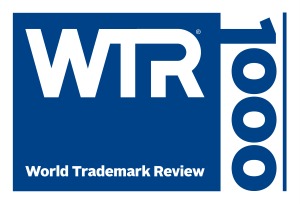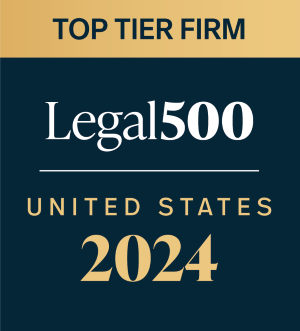On October 30, 2023, recognizing that Artificial Intelligence (AI) holds both extraordinary promise for its commercial applications and advancements and treachery and harm caused by its misuse, the White House issued an Executive Order on the Safe, Secure, and Trustworthy Development and Use of Artificial Intelligence.
The Executive Order represents a significant step toward more comprehensive AI governance in the United States and builds on prior White House actions, including the recent voluntary commitments agreed to by large technology companies and the Blueprint for an AI Bill of Rights released in October 2022. The order outlines a society-wide effort to develop AI standards and governance frameworks to includes the federal government, the private sector, academia, and individuals. Below is a summary of relevant aspects of the Executive Order.
AI Governance Principles
To advance and govern the development and use of AI, the White House has identified eight guiding principles and priorities:
- AI must be safe and secure by requiring robust, reliable, repeatable, and standardized evaluations of AI systems, as well as policies, institutions, and other mechanisms to test, understand, and mitigate risks from these systems before they are put to use.
- The United States should promote responsible innovation, competition, and collaboration by making investments in AI-related education, training, development, research, and capacity, while simultaneously tackling novel intellectual property (IP) questions and other problems to protect inventors and creators.
- The responsible development and use of AI require a commitment to supporting American workers by providing education and job training and ensuring all workers have a seat at the table, including through collective bargaining, to ensure that they benefit from these opportunities.
- AI policies must be consistent with the advancement of equity and civil rights.
- The interests of Americans who increasingly use, interact with, or purchase AI and AI-enabled products in their daily lives must be protected.
- As AI continues advancing, Americans’ privacy and civil liberties must be protected by ensuring that the collection, use, and retention of data is lawful, is secure, and mitigates privacy and confidentiality risks.
- It is important to manage the risks from the federal government’s own use of AI and increase its internal capacity to regulate, govern, and support responsible use of AI to deliver better results for Americans.
- The federal government should lead the way to global societal, economic, and technological progress by pioneering those systems and safeguards needed to deploy AI technology responsibly and building and promoting those safeguards with the rest of the world.
AI Industry Standards
To address these principles, among other directives, the Executive Order directs the National Institute of Standards and Technology (NIST) to establish guidelines and best practices for developing and deploying safe, secure, and trustworthy AI systems, and to create guidance and benchmarks for evaluating and auditing AI capabilities, with a focus on capabilities through which AI could cause harm, such as in the areas of cybersecurity and biosecurity.
The Executive Order also directs the Department of Commerce to identify existing standards, tools, methods, and practices aimed at reducing the risks posed by synthetic content, as well as to identify potential new standards for development. These potential new standards include methods for authenticating content and tracking its provenance, detecting synthetic content, labeling synthetic content using watermarks, and preventing generative AI from producing abusive material or producing non-consensual intimate imagery of real individuals (to include intimate digital depictions of children or the body or body parts of an identifiable individual).
AI Intellectual Property
The Executive Order requires the Director of the United States Patent and Trademark Office (USPTO Director) within 120 days (by February 27, 2024) to publish guidance to USPTO patent examiners and applicants addressing inventorship and the use of AI—including generative AI—in the inventive process, including illustrative examples in which AI systems play different roles in inventive processes and how, in each example, inventorship issues ought to be analyzed. Within 270 days (by July 26, 2024), the USPTO Director must issue additional guidance to USPTO patent examiners and applicants to address other considerations at the intersection of AI and IP, which may include updated guidance on patent eligibility to address innovation in AI and critical and emerging technologies.
Within 270 days (by July 26, 2024) or 180 days after the United States Copyright Office publishes its forthcoming AI study that will address copyright issues raised by AI, whichever comes later, the USPTO and Director of the United States Copyright Office must consult and issue recommendations to the President on potential executive actions relating to copyright and AI. The recommendations must address any copyright and related issues discussed in the United States Copyright Office’s study, including the scope of protection for works produced using AI and the treatment of copyrighted works in AI training.
Conclusion
The Executive Order directs federal agencies and departments on virtually all fronts to create standards and regulations for the responsible development and use of AI, with a focus on developing safe and secure AI technology, and protecting Americans’ civil rights and liberties, including in the areas of privacy, criminal justice, education, health care, housing, and labor. While the development of enforceable standards and regulations will largely depend on the studies and actions to be undertaken by these agencies and departments over the next year, companies in the private sector should in the meantime ensure that their use and development of AI systems are consistent with the principles described in the Executive Order.
Should you have any questions regarding AI governance, its impacts on your business, or any compliance obligations it creates, please reach out to David A. Wheeler, Alfred C. Tam, Josh Hanson, or your NGE attorney.
The content above is based on information current at the time of its publication and may not reflect the most recent developments or guidance. Neal Gerber Eisenberg LLP provides this content for general informational purposes only. It does not constitute legal advice, and does not create an attorney-client relationship. You should seek advice from professional advisers with respect to your particular circumstances.







